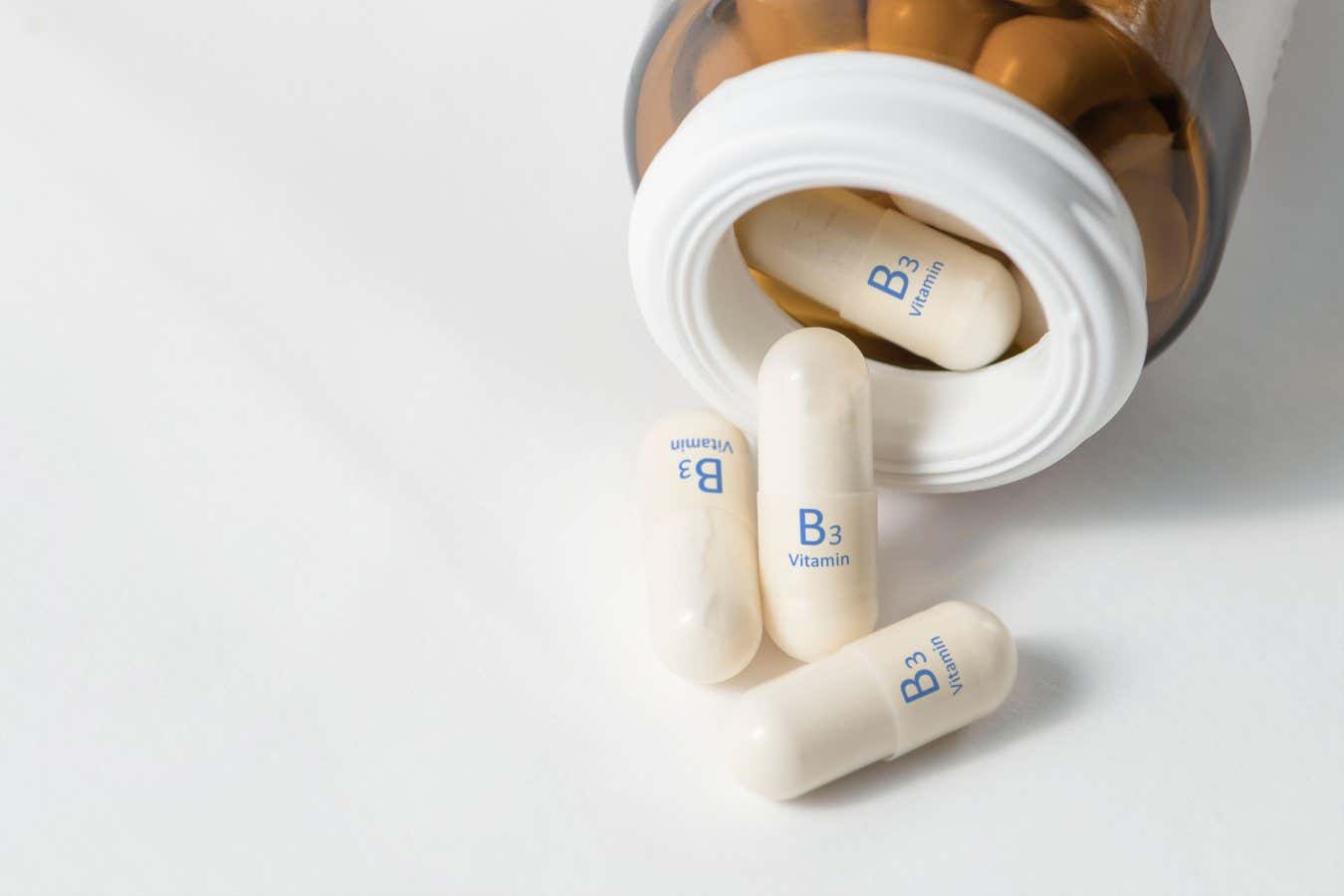People with higher levels of niacin in their blood may be more at risk of a heart attack or stroke, possibly because too much of the vitamin inflames blood vessels
By Grace Wade
19 February 2024
Niacin, or vitamin B3, is a popular supplement
SERSOL/Alamy
People with high levels of niacin, also known as vitamin B3, in their blood may be more likely to have a heart attack or stroke than those with lower levels. Excessive amounts of the vitamin, which is routinely added to fortified food and can be taken as a supplement, may inflame blood vessels.
Heart attacks and stroke are leading causes of death worldwide. While researchers have made significant strides over the past few decades in discovering the risk factors for these conditions, they haven’t identified them all.
“If you treat [high] cholesterol and [high] blood pressure and diabetes and all the existing risk factors, you can still suffer a heart attack,” says Stanley Hazen at the Cleveland Clinic in Ohio. “There is something that we are missing.”
Advertisement
Read more
Which dietary supplements actually work and which should you take
In an effort to fill these gaps, Hazen and his colleagues collected blood samples from 2331 adults in the US and 832 adults in Europe who had elected to undergo cardiovascular screenings. The team analysed the samples for substances called metabolites, byproducts of metabolic processes such as digestion. The researchers then tracked incidents of cardiac events, such as heart attacks and strokes, among the participants over three years.
They found that people with elevated levels of a metabolite called 4PY were around 60 per cent more likely, on average, to experience such an event than those with lower levels. This compound only arises when the body breaks down excess niacin.
